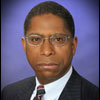01 Apr 2007 A Rational Response to an Irrational Act, by B.B. Robinson, Ph.D.
 |
A Rational Response to an Irrational Act by B.B. Robinson, Ph.D. (bio) |
Recent events put Don Imus’ neck on the chopping block for broadcasting a statement – which you already know and which I will not repeat here – about members of the Rutgers University women’s basketball team.
Imus willingly acknowledged – after the fact, of course – that his statements were offensive. In his words, he was “way out of line.” It eventually cost him his job. Comic actor Michael Richards was similarly remorseful after his racial tirade caught on tape at a comedy club last November that cost him his reputation. MTV, which broadcast the misogynistic cartoon “Where My Dogs At?” last August showed how low television can go in its portrayal of black women.
Only after the fact, after reality sets in and after the damage is done, do people and network executives “get religion” and endeavor to make things right. These are not the first or the only occurrences of immoral negative imagery of black Americans. I also doubt they will be the last.
As rational economic agents, black Americans should recognize that there appears to be a proclivity for these disparaging events to occur. Consequently, why always operate at the end of a yo-yo – rising up only when deplorable statements are made? Why not organize a watchdog organization to monitor the media for vile remarks and establish a systematic and rational mechanism for addressing them when they occur?
Some might argue such a group is not necessary. They may say that we already have groups such as the NAACP. But these are the groups that have largely engaged in the protesting, boycotting and firing demands that have gotten them attention but not stopped the ongoing problem. Those tactics haven’t stopped the deluge. Obviously, we need something new – something with teeth.
A significant portion of any contributions to this proposed watchdog organization could be used to purchase shares of media companies. Black Americans and others who donate to this organization would allow that organization to become an investor in broadcasting companies, holding a stake in the industry that will grow over time. As these shares increase, black Americans, through the organization, would gain votes – and influence – in these corporations. This influence could be used not only to affect the disposition of bad actors such as Imus, but also help ensure that negative images of and statements about black Americans cease to be a part of America’s media landscape.
Black Americans must realize that they are losing employment prospects and other opportunities each day because of the types of statements made by the likes of Don Imus and Michael Richards and programming on networks such as MTV and BET. These statements and images reinforce, in some minds, the view that blacks are ignorant and inferior. Moreover, these events can have a negative subliminal effect on black Americans.
When we come to these realizations, we’ll respond rationally – as many other ethnic groups have – to form a watchdog organization. This can bring immediate and permanent rationality to seemingly irrational broadcasters and networks because we will legitimately have a seat at the table.
# # #
B.B. Robinson, Ph.D. is a member of the national advisory council of the black leadership network Project 21. You can visit his website at www.blackeconomics.org. Comments may be sent to [email protected].
Published by The National Center for Public Policy Research. Reprints permitted provided source is credited. New Visions Commentaries reflect the views of their author, and not necessarily those of Project 21 or the National Center for Public Policy Research.



